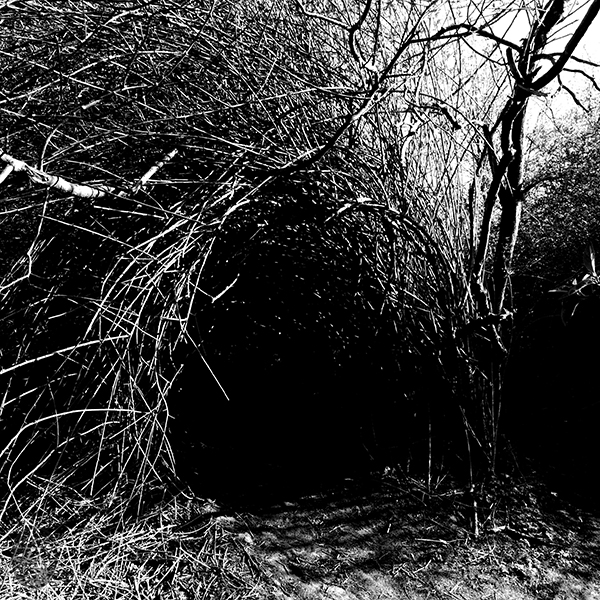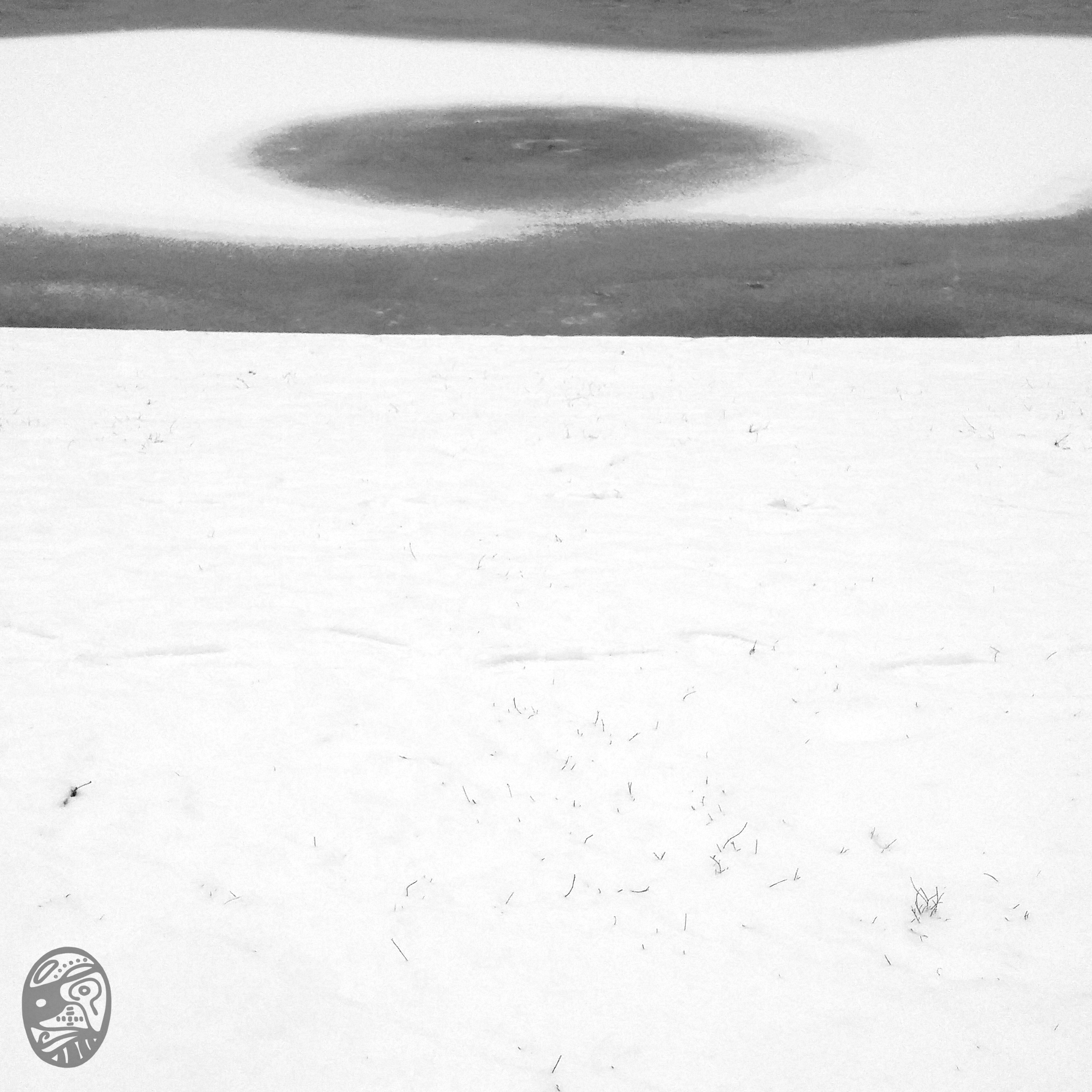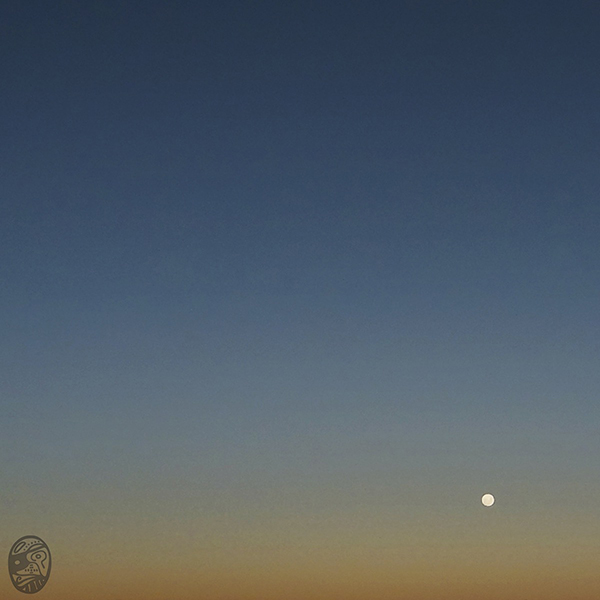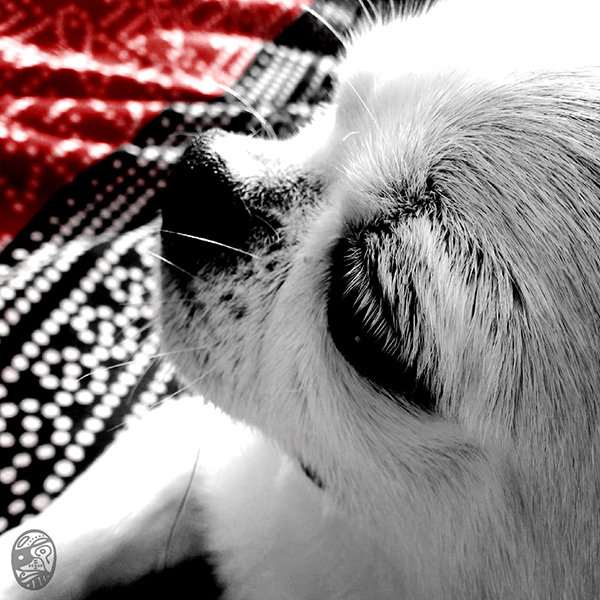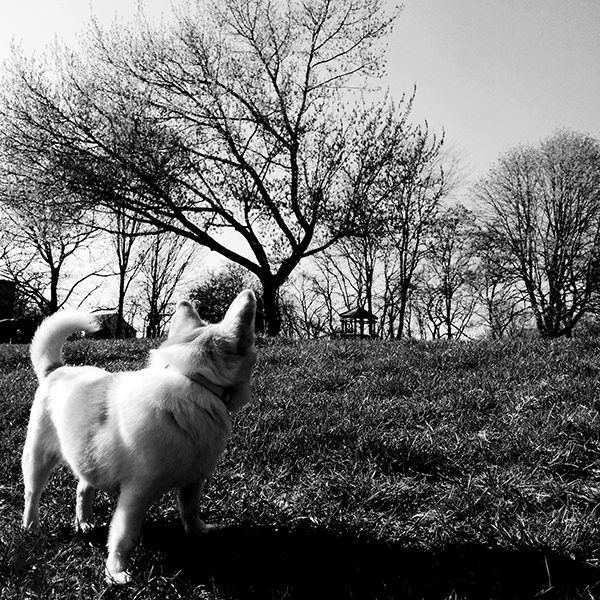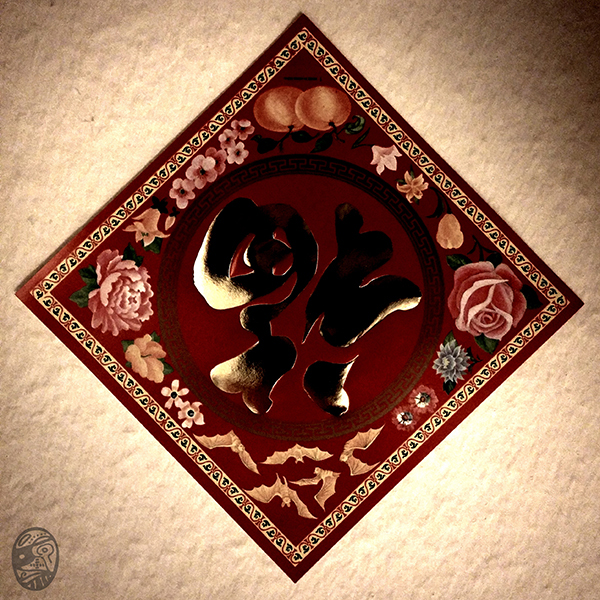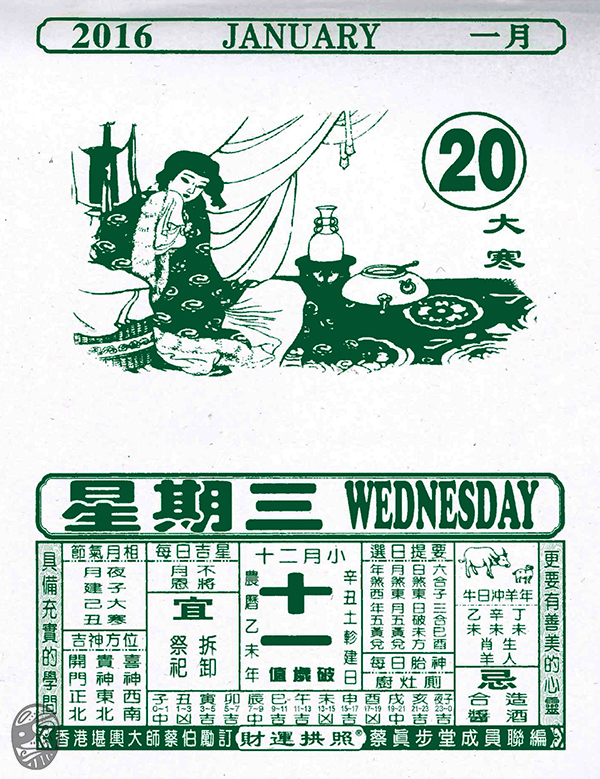
相片:在下家鄉傳統的農曆日曆 -
是日為農曆乙未年己丑(十二)月辛丑(十一)日,公曆二零一六年一月廿日,及本年最後一個節氣 - 「大寒」。
Photo: tRADITIONAL dAILY aGRICULTURAL cALENDAR (also called as lUNAR calendar) from my hOME –
tODAY is: the 11th day of the 12th month of the 32th year Yiwei (traditional Agricultural calendar), 20th of January 2016 (gREGORIAN calendar), and the lAST sOLAR tERM of the year – “sEVERE cOLD”.
***
曆|cALENDAR
有朋友問道:「為什麼《除夜》一詩中會提到春天?」
A friend asked: “Why is the ‘sPRING’ mentioned in the poem ‘Old Year’s Day‘?”
這可要從我們的曆法說起。
Then let’s begin with our calendar.
曆
Calendar
華夏文化有自己的一套曆法-傳統農曆。
The Great Chinese culture has its own set of calendar – traditional Agricultural calendar.
歷史上記載,相傳黃帝(公元前二六九八年-二五九八年)制定了曆法,是現今傳統農曆的原形。古時,人民主要以務農為生,而為求生活平安順利,人民需要一套有用的曆法。因此,傳統的華夏曆法不只是計算日子,還可以提供天文、氣象、地理及風水等重要的科學資訊。同時,在這數千年間,歷代創造了超過一百部曆法,並經過不斷的改良、修正及薪傳,傳統農曆至今仍被重視及應用於生活之中。
According to the historical records and the legend, the Yellow Emperor (2698-2598 BC) invented calendar, which is the prototype of today’s traditional Agricultural calendar. In the ancient time, people mainly lived by farming, and in order to live safely and smoothly, people need a useful calendar. Therefore, the traditional Agricultural calendar is not just counting the days, also offers astronomical, meteorological, geographical and geomantic etc. important scientific information. Moreover, the past dynasties had created more than hundred sets of calendars in the thousands of years, and by continuously improving, correcting and passing on, the traditional Agricultural calendar is still respected and applied to life.
Continue reading →
